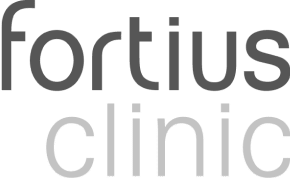As healthcare advances, the administrative and operational demands on practices continue to increase, often taking valuable time and resources away from patient care. In response, practice management software is evolving to meet the needs of modern healthcare environments with features designed for greater efficiency and adaptability.
This article examines the major trends shaping the future of practice management software, focusing on advancements in cloud-based solutions, automation, telemedicine integration, data analytics, and patient engagement. With solutions like Meddbase leading the way, these trends represent a promising shift toward streamlined operations and enhanced patient care.
1. Cloud-Based Practice Management Solutions on the Rise
The transition to cloud-based systems has transformed healthcare IT, and practice management is no exception. Software platforms like Meddbase provide healthcare providers with flexibility, enabling secure access to patient information and operational tools from any location. This adaptability is essential in today’s healthcare settings, where remote work and multi-site coordination are increasingly common.
Cloud-based practice management software offers several benefits:
- Automatic Updates: No need for manual installations or downtime. New features and security enhancements are automatically integrated.
- Data Security: Cloud systems ensure HIPAA and GDPR compliance, providing high levels of data protection and reducing the risk of breaches.
- Operational Flexibility: Remote access to critical tools enables providers to manage their operations seamlessly from anywhere, which is particularly valuable for multi-location practices.
The shift toward cloud solutions simplifies practice management, making it easier to scale and adapt to changing healthcare requirements. Explore Meddbase’s cloud-based platform for an in-depth look at its capabilities.
2. Automation: Reducing Administrative Burdens
Administrative work remains a significant time investment in healthcare. With automation, practice management software can now streamline tasks that previously required considerable manual input. Leading platforms can now automate various administrative functions, including:
- Appointment Scheduling: Patients can schedule appointments themselves through an online portal, reducing the workload for administrative staff.
- Billing and Invoicing: Automated billing systems streamline payment processes and help ensure accurate and timely invoicing.
- Regulatory Compliance: Automated compliance tracking and reporting ensure adherence to healthcare standards, reducing the administrative burden and mitigating the risk of costly errors.
Automation is particularly impactful in repetitive tasks, reducing the likelihood of human error and allowing healthcare providers to focus on delivering quality care.
3. Integration of Telemedicine Capabilities
Telemedicine has quickly become a staple of modern healthcare. While it gained traction during the COVID-19 pandemic, it is increasingly viewed as an essential component of a comprehensive healthcare service offering. As a result, forward-looking practice management software now integrates telemedicine features to meet patient demand and enhance service accessibility.
Key benefits of telemedicine integration include:
- Patient Convenience: Patients can attend virtual consultations from any location, eliminating travel time and enhancing accessibility for those with mobility issues.
- Streamlined Process: Integrated telemedicine allows practices to manage virtual appointments, records, and billing from a single platform.
Software with telemedicine capabilities, such as Meddbase, can efficiently support this functionality, ensuring that providers have the tools needed to deliver secure, high-quality remote care.
4. Data-Driven Decision Making with Analytics
Practice management software is now equipped with powerful analytics tools, allowing healthcare organisations to make data-informed decisions to improve both patient care and operational efficiency. With real-time analytics, practices can gain insights into areas such as patient demographics, treatment outcomes, and financial performance.
By identifying trends, practices can adapt strategies to improve patient engagement, optimise scheduling, and enhance care quality. Data-driven insights can also play a crucial role in reducing no-shows, understanding patient needs, and boosting overall satisfaction.
Meddbase’s reporting and analytics tools are designed to help healthcare professionals make informed decisions without relying on manual data analysis, enabling data-driven improvements across the practice.
5. Advanced Patient Portals Enhancing Engagement
Patient portals are becoming increasingly sophisticated, with features that go beyond traditional record access. Today’s patient portals are designed to foster engagement and empower patients to manage their healthcare independently. Modern practice management systems now provide functionalities that include:
- Online Appointment Scheduling: Patients can conveniently book, reschedule, or cancel appointments without assistance.
- Secure Communication: Direct messaging options allow patients and providers to communicate securely, reducing the need for time-consuming phone calls.
- Online Billing and Payment: Patients can view and pay bills online, simplifying the billing process for both patients and practices.
These advanced portals allow patients to be active participants in their healthcare, enhancing satisfaction and fostering loyalty. In turn, practices benefit from a more streamlined administrative process.
FAQs on the Future of Practice Management Software
What is the role of practice management software in healthcare?
Practice management software simplifies the operational aspects of running a healthcare practice, from scheduling and billing to compliance and patient communication. Platforms like Meddbase integrate these functions into a single, user-friendly system, making it easier for healthcare providers to focus on patient care.
How secure are cloud-based practice management solutions?
Cloud-based practice management solutions are designed with security in mind, often providing higher levels of protection than on-site systems. Meddbase, for example, meets both HIPAA and GDPR standards, ensuring robust data security and regulatory compliance.
Why is telemedicine integration important for healthcare practices?
Telemedicine offers greater flexibility and convenience for both patients and providers, allowing remote consultations and expanding access to care. As patient expectations evolve, telemedicine integration in practice management software is increasingly essential.
What benefits does automation bring to healthcare administration?
Automation reduces time-consuming manual tasks such as scheduling, billing, and compliance tracking, leading to fewer errors and more efficient operations. Automated systems help practices operate more smoothly, enabling teams to focus on patient care.
How does data analytics improve practice management?
Data analytics offers insights that help healthcare providers make informed decisions to optimise patient care, operational efficiency, and financial performance. By using analytics, practices can identify trends, improve patient engagement, and enhance overall service quality.
As practice management software continues to evolve, its impact on healthcare administration and patient outcomes is undeniable. Embracing these trends will enable practices to operate more efficiently, improve patient satisfaction, and better position themselves in an increasingly competitive healthcare landscape.
For healthcare providers seeking to stay ahead, platforms like Meddbase offer a comprehensive solution to meet the demands of modern practice management, providing the flexibility, automation, and insights needed to excel in today’s healthcare environment.













